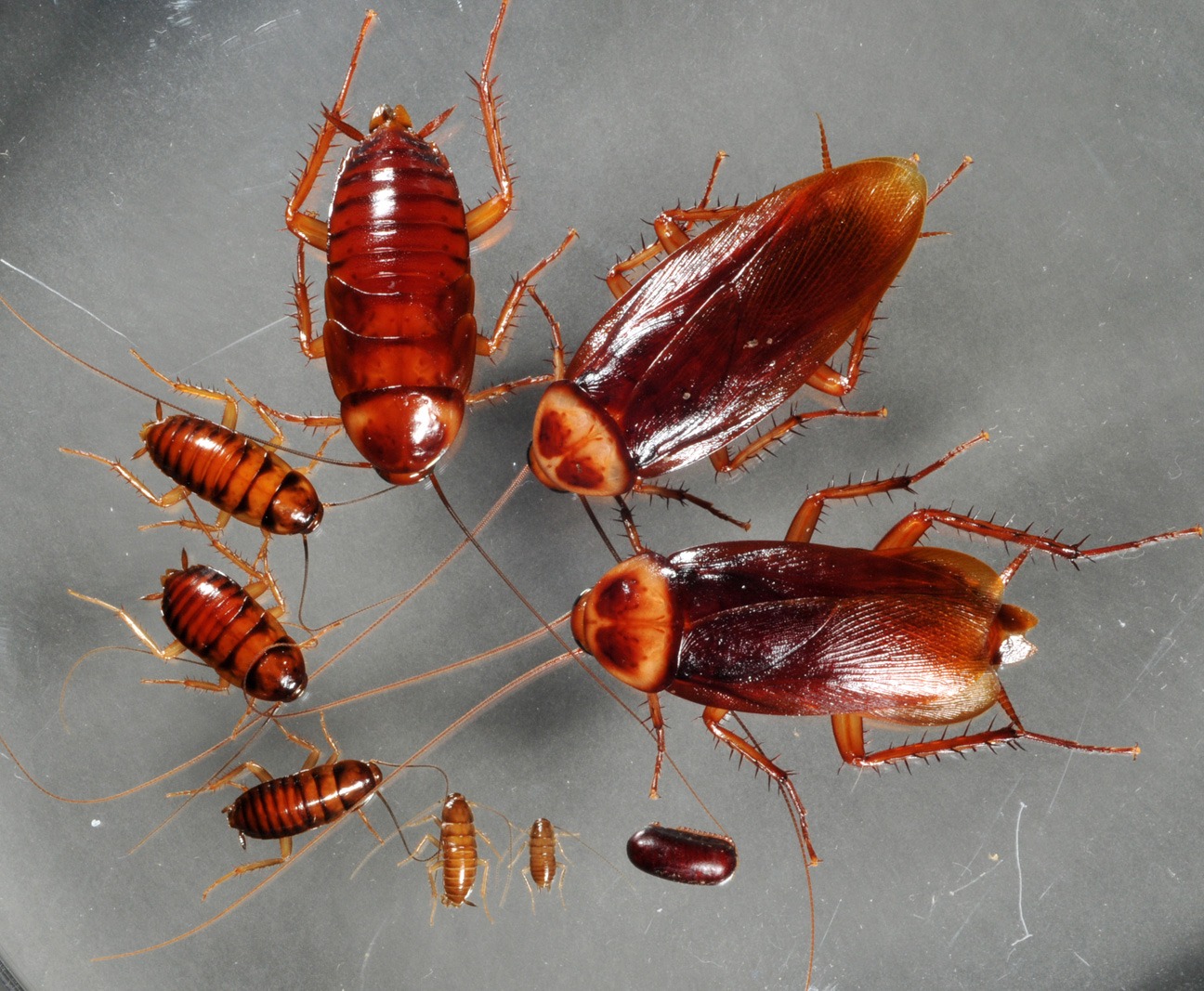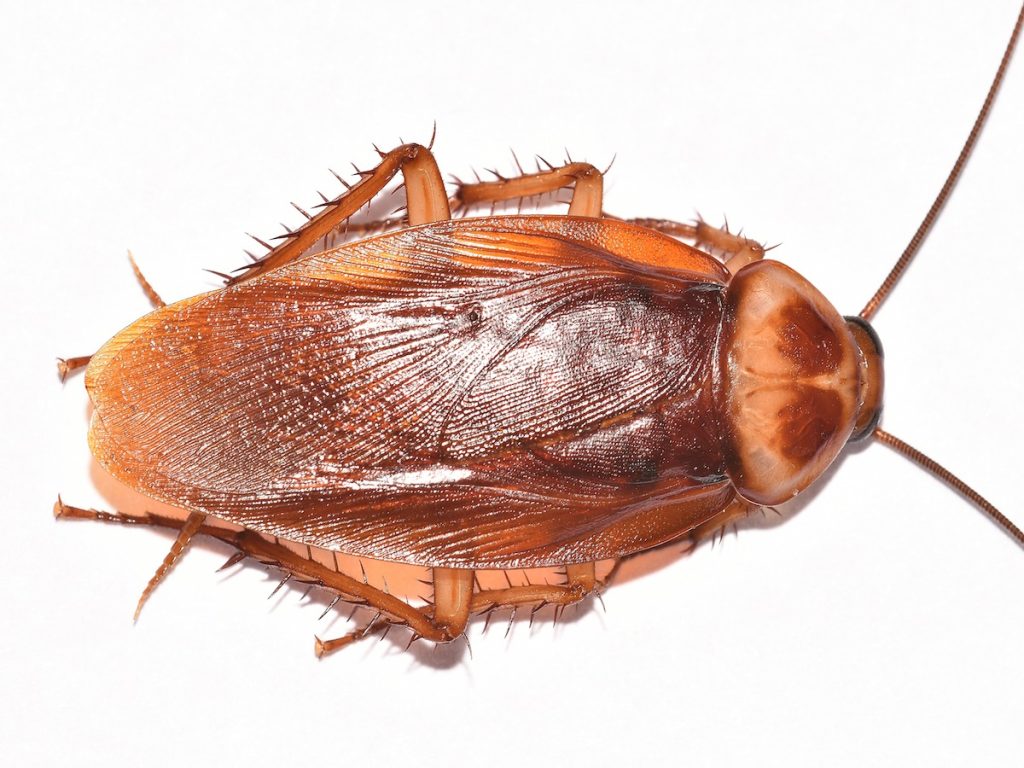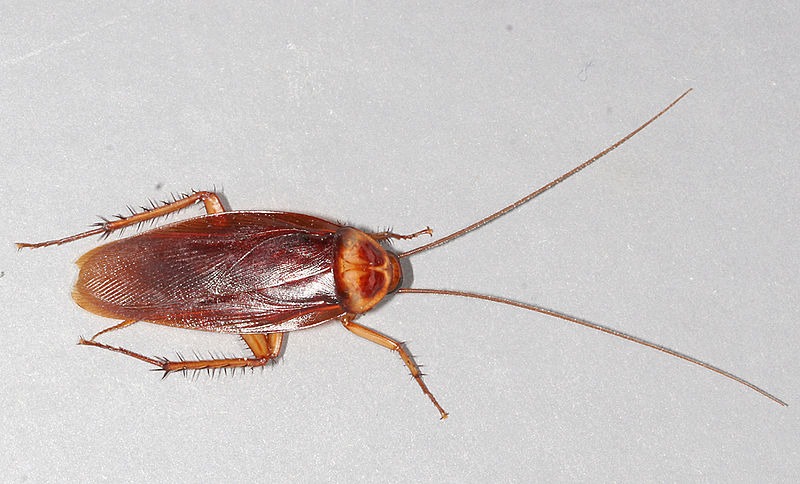HT5. Did You Know That If These Arrive at Your House It Is a SIGN That…
The Uninvited Guest: The American Cockroach (Periplaneta Americana)
If you’ve ever spotted a large reddish-brown cockroach scurrying across your floor, you may have just encountered the American cockroach (Periplaneta americana). As one of the most common and largest cockroach species in the world, its presence in your home is more than just a nuisance — it’s a warning sign.
Why Their Presence Matters
Seeing American cockroaches in your home is often a sign of deeper issues that you may not realize. These pests are more than just creepy crawlies; they’re messengers indicating potential problems within your living environment.

1. Sign of Poor Sanitation or Hygiene Issues
Cockroaches are drawn to places with easy access to food, water, and shelter. If they’re showing up in your home, it’s a sign that they’ve found one (or all) of these essential resources. Here’s why this happens:
- Food Sources: Crumbs, food scraps, and unsealed food packages are like a buffet for cockroaches.
- Moisture: They’re drawn to water leaks, damp areas, and condensation from pipes.
- Shelter: Dark, warm spaces like basements, kitchens, and crevices in walls are perfect hiding spots.
If you’re noticing them frequently, it’s time to take a closer look at your cleaning habits and the state of your kitchen, pantry, and bathroom.

2. Sign of Structural Issues in Your Home
American cockroaches don’t just walk through the front door. They’re excellent at sneaking in through small cracks, crevices, and gaps. Their presence may be a sign that your home’s structure has vulnerabilities. Here’s how they get in:
- Cracks in Walls or Foundations: Even the tiniest cracks in your foundation or walls can be a cockroach’s highway.
- Openings Around Doors and Windows: Gaps around doors and improperly sealed windows create easy access points.
- Pipes and Sewers: Since cockroaches thrive in damp, warm environments, sewers, drains, and plumbing pipes are prime entry points.
If you’re seeing cockroaches, it’s time to check for structural issues and seal off any entry points to stop their invasion.

3. Sign of Potential Health Risks
American cockroaches don’t just come for food and shelter — they also bring a host of health risks. They’re known carriers of bacteria and allergens that can affect you and your family. Here’s what’s at stake:
- Bacteria Carriers: They carry harmful bacteria like Salmonella and E. coli, which can cause food poisoning and gastrointestinal issues.
- Allergens and Asthma Triggers: Their droppings, saliva, and shed skin contain allergens that can worsen asthma symptoms, especially in children and sensitive individuals.
- Food Contamination: They walk across countertops, stored food, and dishes, leaving behind bacteria and filth.
Their presence should not be ignored. Taking immediate action can protect your family’s health.

4. Sign of Food Storage Problems
If you’re noticing cockroaches in your pantry, it’s a signal that your food storage practices might not be up to par. Cockroaches love to invade food packaging and contaminate your supplies. Here’s what to check:
- Unsealed Food Packages: Flour, cereal, rice, and pet food are prime targets for cockroach infestations.
- Damaged Packaging: Cockroaches can chew through thin cardboard and soft plastic packaging.
To prevent this, store food in airtight containers and inspect your pantry for damaged or open food packaging.
5. Sign of Pest Breeding Grounds
Cockroaches reproduce quickly. If you see one, it’s likely there are more hiding nearby. They’re prolific breeders, and their population can explode in no time. Here’s why this is a problem:
- Rapid Reproduction: Female cockroaches produce egg cases (oothecae), each containing dozens of baby roaches.
- Hidden Nests: These nests can be found in cracks, behind appliances, and under furniture where you rarely look.
Spotting one cockroach could mean a much larger population is thriving behind the scenes. Acting quickly can prevent a full-blown infestation.
How to Address the Problem
If you’re seeing American cockroaches in your home, it’s essential to take action immediately. Here’s how to address the problem and prevent future infestations:
- Maintain Cleanliness
- Clean up food crumbs and spills promptly.
- Store food in airtight containers.
- Take out the trash regularly and use a sealed trash can.
- Seal Entry Points
- Inspect and seal cracks, gaps, and crevices in walls, floors, and foundations.
- Install weather stripping around doors and windows.
- Ensure drain covers are in place and seal openings around pipes.
- Address Moisture Issues
- Repair any leaks in pipes or faucets.
- Use a dehumidifier in damp areas like basements.
- Check for areas of condensation around pipes.
- Use Professional Pest Control Services
- If the infestation is severe, consider hiring a pest control professional to eliminate the problem.
- Professionals can use more effective treatments to eradicate hidden nests and breeding sites.
The Bigger Picture
Although cockroaches are despised pests in homes, they play a vital role in nature. In the wild, they help decompose organic matter, recycling nutrients back into the ecosystem. Their resilience and adaptability have also made them a subject of scientific study.
Final Thoughts
If American cockroaches show up at your house, it’s not just a random visit. Their presence is a sign of underlying issues in your home, such as poor hygiene, structural vulnerabilities, or excess moisture. These pests are more than just a nuisance; they’re a health risk and a warning that changes are needed in your living environment.
Addressing these problems not only keeps cockroaches at bay but also creates a cleaner, safer, and healthier home for you and your family. Take immediate action, seal up entry points, and maintain good hygiene to prevent a small cockroach problem from becoming a large infestation.


